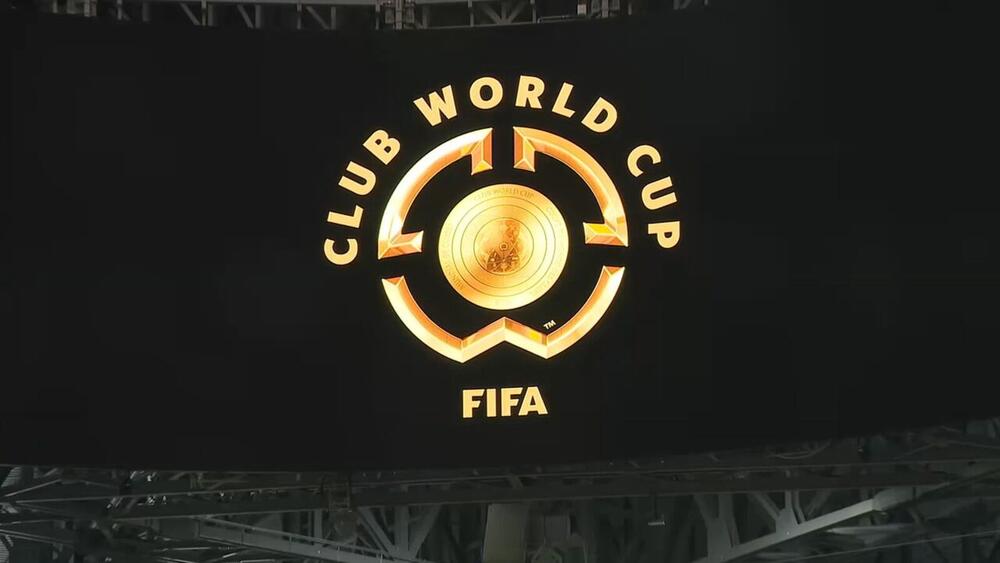
Section Branding
Header Content
Atlanta to host matches for the 2025 FIFA Club World Cup and 2026 FIFA World Cup. What's the difference?
Primary Content
LISTEN: The 2025 FIFA Club World Cup and 2026 FIFA World Cup will have several matches in Atlanta over the next year, with the Club World Cup set to begin in a few weeks. GPB's Orlando Montoya and Jon Nelson discuss what the matches mean for the city and what to expect.

Atlanta will host several matches for the 2025 FIFA Club World Cup and the 2026 World Cup at the Mercedes-Benz Stadium within the next year, with the former beginning on June 16.
GPB's Orlando Montoya and Jon Nelson discussed the differences between the two tournaments and what sports fans can expect from the exhibitions.
TRANSCRIPT
Orlando Montoya: Well, Jon, most people know about the World Cup, held every four years, when, like the Olympics, athletes play for their countries, but the Club World Cup is something a little bit newer and less well-known. What's the difference?
Jon Nelson: Yeah, this is a 32-team format. It used to be one tournament, but now it's another tournament under a different name. And so, you have the best of the best from club competitions that have survived winning regional competitions in their league competitions over the last four years. And there was math involved. And now you have the best of the best thrown into this pile.
Orlando Montoya: These matches are being held in the summertime when most of the world takes a break from highly competitive soccer, like in the Champions League and the Premier League. And typically, in the U.S. we'll see friendly, or exhibition matches come over from Europe in the summertime. Are these friendly exhibitions?
Jon Nelson: Oh no, not when there's money involved. You walk in the door, just to give you an example. You go into the group stage. You get money for a win. You get a little less money for a draw. You go out of the group's stage. You get more money. You keep winning, and winning, and winning. By the end of it all, if you've won everything and you've won every match, you could walk away with nine figures to the left of the decimal place into your coffers to reward your players and your club. So yeah, there's a lot of money involved here.
Orlando Montoya: And so who will we see in these matches? Will we see the big names from these clubs?
Jon Nelson: I — yeah, I think you will, at least in the first two matches of the group stage, because if you have won your group and you're advancing to the knockouts, you want to make sure that your players are still as healthy as possible for that next stage. So, if your favorite team is already in the group stage and they still have a match to play, maybe you're going to see some squad rotation. So, if you're gonna be attached to a favorite club and you are going to be watching them in a — in a particular town, go watch one of the first two matches in the group stage to assure yourself that you're going to be seeing the best of the best, because that third one? You never really know, leading into the knockout.
Orlando Montoya: I took a look at the list of the teams in the competition, and we have many expected European giants, favorites like Real Madrid and Manchester City, but we also have some farther-flung lesser-known names like Al Ain [F.C.] from Abu Dhabi and Urawa Reds from Tokyo. Will these clubs be able to compete with the high-spending European juggernauts?
Jon Nelson: That's going to be the big question. You know, you end up with someone like an Auckland City who is a four-year ranking acceptee from Oceania in the Oceania Football Confederation. How will they stack up? Do we see matches where those clubs will sit there and defend for 90 minutes or just sit there and turn it into a kickabout for 90 minutes, just try to get that point, to try to that million dollars, to try get that that point? That's gonna be part of the strategy in all of this, where you see an Al Ahly or an Al Ain. That's going to be the fun part for me in all of this is seeing how they try and compete because of all of this cash that's on the line.
Orlando Montoya: Now, a year from now, Atlanta will be one of the host cities for the FIFA World Cup. How is the Club World Cup a dry run for the larger competition in 2026?
Jon Nelson: Well, I think that what you do is you get to see what your infrastructure looks like. How does your public transportation go? How does the traffic look? How does public infrastructure happen? What does it do for economics? When it comes to the venues that are going to be there as your host venues for the clubs themselves — like we focused on GPB Sports, involving what it's gonna be like for Mercer University down in Macon to be a host for LAFC. It's gonna to be a great learning experience for Macon, for Charlotte, for Greensboro: all of these different little pockets that get to learn and get those boosts of the economy. It's going to be interesting. I'm looking forward to the empirical evidence on the flip side of this that they have to turn quickly and get ready for '26.
Orlando Montoya: Jon Nelson of GPB Sports, thanks for the preview.
Jon Nelson: As always, my friend, great to talk.

